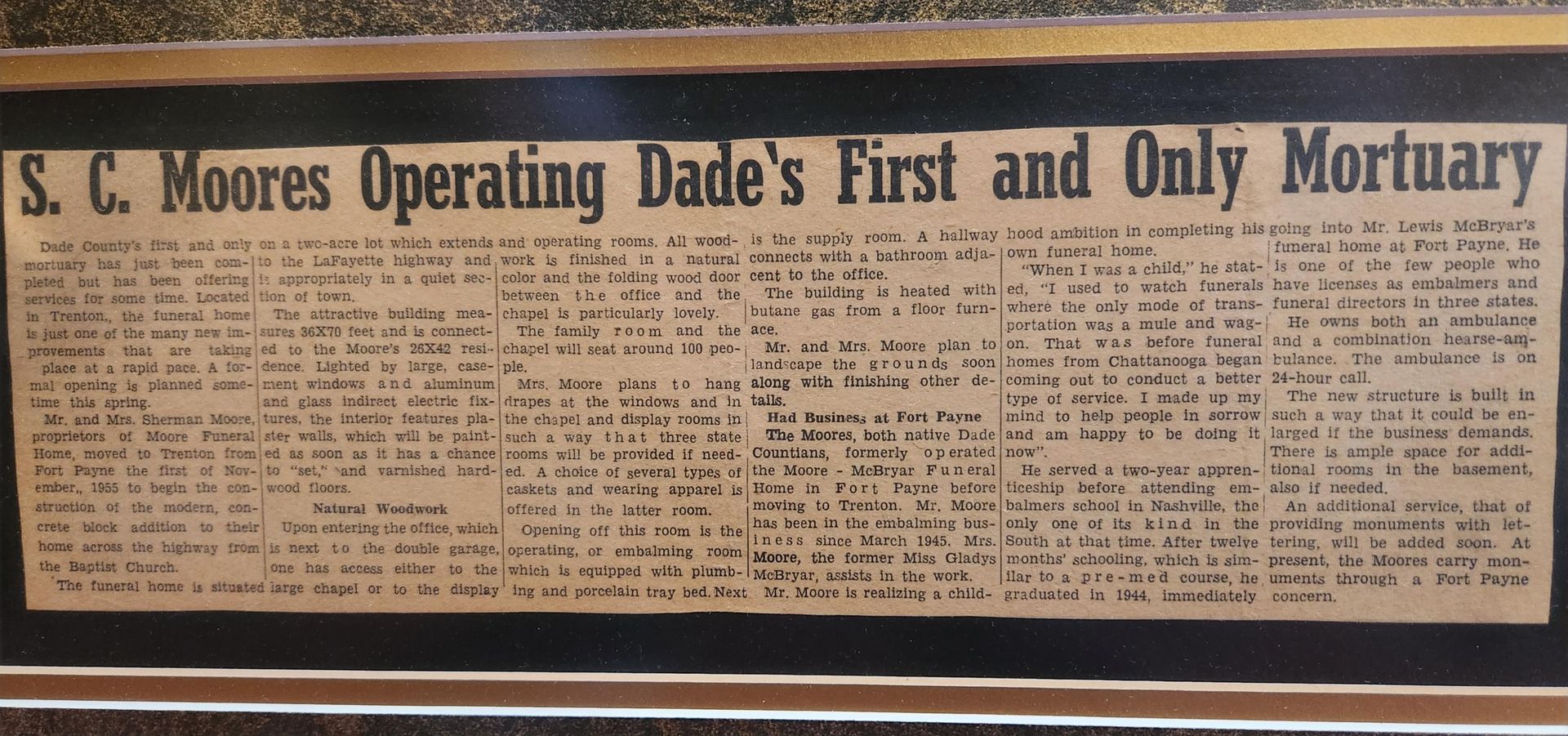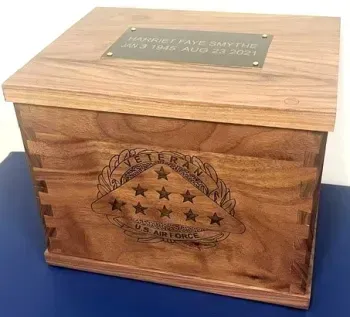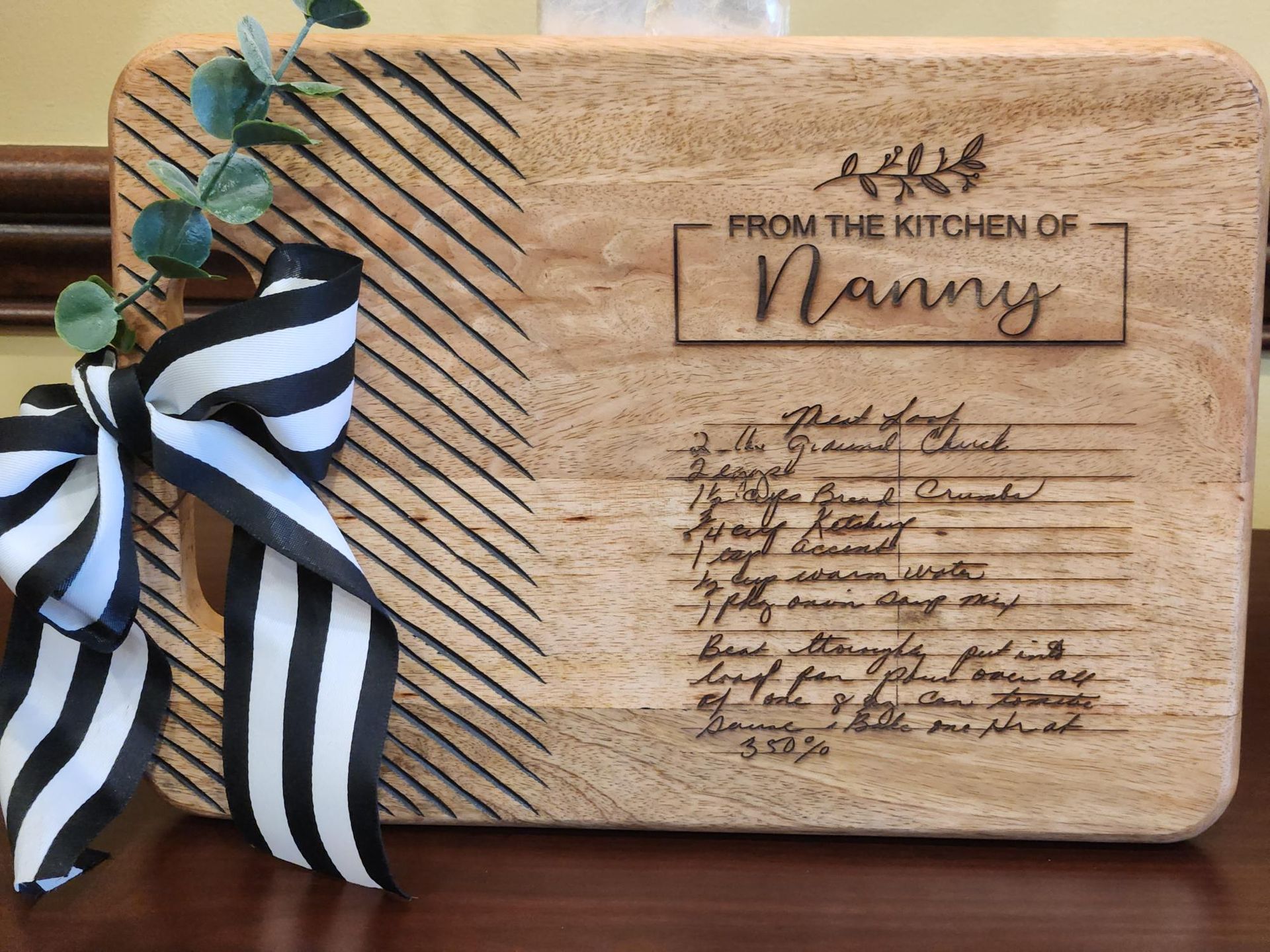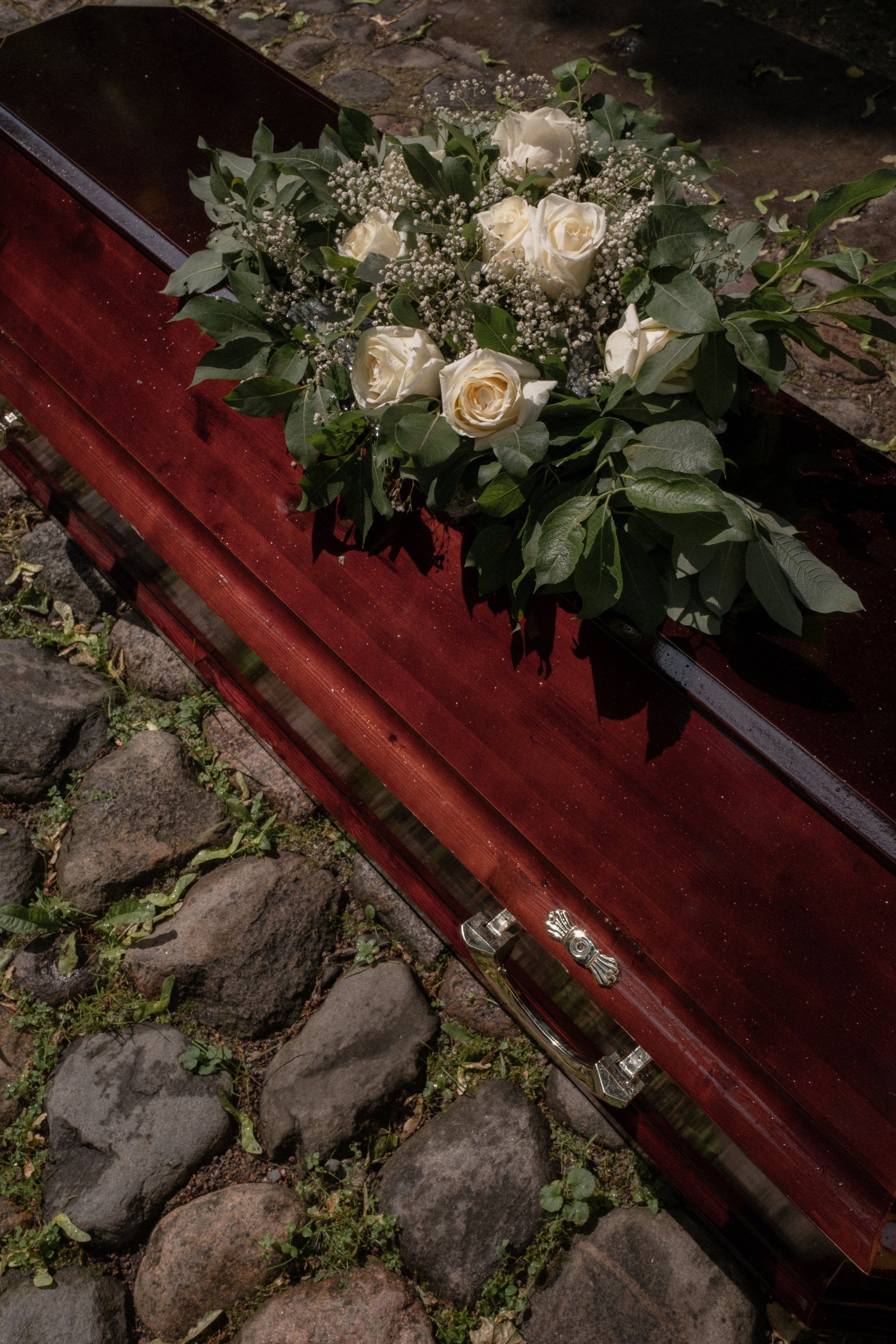What to Do When a Loved One Passes: A Step-by-Step Guide
What to do when a loved one passes
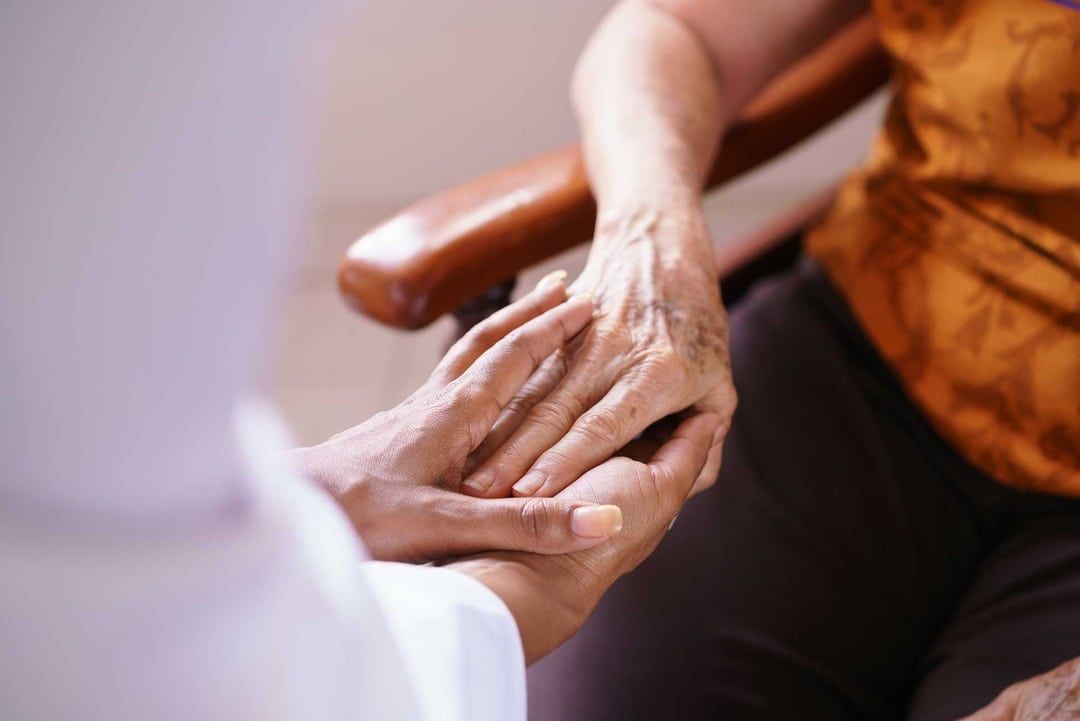
Losing a loved one is one of the most challenging experiences in life. In the midst of grief, it can be overwhelming to know what steps to take next. At Moore Funeral Home, we understand how difficult this time can be, and we’re here to help guide you through the process. Below is a step-by-step guide to assist you in navigating what to do when a loved one passes away.
1. Notify the Right People
The first thing you need to do when a loved one passes is notify the appropriate authorities. The steps to take will depend on where the death occurred:
- If your loved one passed away at home and they were under hospice care, contact the hospice provider. They will guide you through the next steps, including officially pronouncing the death.
- If your loved one passed away at home and was not under hospice care, call 911. First responders will come to the home and they will call the coroner to certify the death.
- If the death occurred in a hospital or care facility, the staff will handle most of the formalities, including notifying the authorities.
2. Contact the Funeral Home
One of the most important steps following a death is contacting a funeral home. At Moore Funeral Home, we are here to offer support and guide you through the next steps, including arranging transportation for your loved one and beginning the funeral planning process. We are available 24/7, so don't hesitate to reach out whenever you need us.
3. Notify Close Family and Friends
After the death has been confirmed, it’s important to notify immediate family members and close friends. This step can be emotionally draining, so lean on your support system during this time. You may also need to inform other significant contacts such as the deceased’s employer, religious community, or key organizations they were involved with.
4. Gather Important Documents
It’s important to gather all relevant documents to handle legal and financial matters smoothly. Here are a few key documents you will need:
- Insurance policies
- Social Security information
- Birth certificate
- Military discharge papers (if applicable)
- Will or estate plans (if applicable)
These documents will assist in settling your loved one’s estate and notifying various agencies of the death.
5. Consider Your Loved One's Final Wishes
If your loved one left behind specific instructions for their funeral or memorial service, take time to honor those wishes. Many people include these in their will or have pre-arranged plans with a funeral home. If your loved one did not make prior arrangements, you will need to decide on the type of service that best reflects their life.
Some key considerations include:
- Burial or Cremation: Depending on personal beliefs or preferences, you will need to choose between burial or cremation.
- Funeral or Memorial Service: You may want a traditional funeral service, a celebration of life, or a more intimate family gathering.
- Obituary: Writing an obituary is a meaningful way to announce the death and share a summary of your loved one’s life. We can help writing and placing the obituary in local newspapers and online.
6. Notify Key Organizations
You will need to notify several organizations of your loved one’s passing. These include:
- Social Security Administration
- Banks and financial institutions
- Insurance companies
- Utility providers
- Credit card companies
- Employers
The funeral director can help you identify the necessary contacts and provide guidance on how to handle these notifications.
8. Take Care of Yourself and Your Family
During this difficult time, it's important to take care of your own emotional and physical well-being. Grief is a natural process, and everyone handles it differently. Lean on your family, friends, or a professional counselor for support. Don’t hesitate to ask for help when you need it.
9. Plan for the Long-Term
After the initial arrangements are made, you may need to address other matters such as handling your loved one’s estate, closing accounts, and distributing belongings according to their will.
You may also need to take care of your own emotional well-being during this time. Grief is a personal journey, and it’s important to seek support from friends, family, or a counselor when needed.
Conclusion
At Moore Funeral Home, we are here to assist you through every step of this journey. From making arrangements to navigating the necessary paperwork, we aim to provide support and guidance during this difficult time. If you ever have any questions or need assistance, don’t hesitate to contact us. We are always here to help.
Let us take care of the details, so you can focus on remembering and honoring your loved one’s life.
Contact Moore Funeral Home today at (706)657-4382 or visit us at www.MooreFHS.com for more information.
